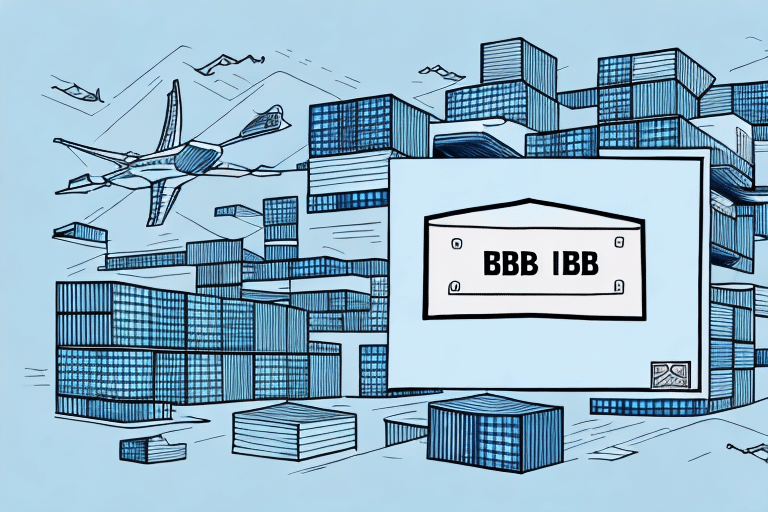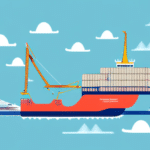Understanding FOB Shipping and FOB Destination
In the realm of international trade, Free on Board (FOB) terms are pivotal in defining the responsibilities and risks associated with the transportation of goods. Understanding the distinctions between FOB Shipping (also known as FOB Origin) and FOB Destination is essential for businesses to make informed decisions that align with their logistical and financial strategies.
FOB Shipping (FOB Origin)
FOB Shipping signifies that the ownership and responsibility for the goods transfer from the seller to the buyer once the goods are loaded onto the shipping vessel at the origin port. From this point onward, the buyer assumes all costs and risks associated with transporting the goods to their final destination.
FOB Destination
FOB Destination means that the seller retains ownership and responsibility until the goods reach the buyer's premises. The seller bears all transportation costs and risks during transit, providing the buyer with greater assurance regarding the safety and timely delivery of the goods.
Advantages and Disadvantages
Advantages of FOB Shipping
- Cost Efficiency for Sellers: Sellers are only responsible for costs up to the loading point, potentially reducing their overall expenses.
- Flexibility in Carrier Selection: Buyers can choose their preferred shipping carriers, optimizing for cost and efficiency.
- Reduced Seller Liability: Sellers have limited responsibility once goods are shipped, minimizing potential liabilities.
Advantages of FOB Destination
- Buyer Assurance: Buyers have greater control over the shipping process, ensuring goods are handled according to their standards.
- Minimized Buyer Risk: Sellers bear the risk until delivery, providing buyers with increased security.
- Potential Cost Savings for Buyers: Sellers may negotiate better transportation rates, which can be passed on to buyers.
Disadvantages of FOB Shipping
- Increased Buyer Responsibility: Buyers are liable for goods during transit, which can pose risks if not properly insured.
- Potential for Disputes: Ambiguities regarding damage or loss after shipping can lead to conflicts between buyer and seller.
Disadvantages of FOB Destination
- Higher Costs for Sellers: Sellers incur all transportation costs, which can impact their profitability.
- Logistical Challenges: Coordinating transportation to the buyer's premises can be complex, especially across international borders.
- Extended Liability: Sellers remain responsible for goods until delivery, increasing their exposure to potential losses.
Cost Comparison: FOB Shipping vs FOB Destination
When evaluating the costs associated with FOB Shipping and FOB Destination, it's crucial to consider all factors, including transportation fees, insurance premiums, and potential risk-related expenses. Generally, FOB Shipping tends to be more cost-effective for sellers, as they are responsible for fewer transportation costs. Conversely, FOB Destination may offer cost savings for buyers through negotiated transportation rates and reduced risk exposure.
Factors to Consider When Choosing Between FOB Shipping and FOB Destination
Selecting the appropriate FOB term depends on various factors:
- Nature of Goods: High-value or perishable goods may benefit from FOB Destination to ensure better handling and reduced risk.
- Transportation Infrastructure: The reliability of transportation networks can influence the decision, with FOB Shipping being preferable in well-established routes.
- Cost Considerations: Businesses must weigh the total costs, including transportation and insurance, associated with each FOB term.
- Risk Tolerance: Companies with lower risk tolerance may prefer FOB Destination to mitigate potential losses during transit.
- Regulatory Compliance: Understanding international trade regulations and customs requirements is essential, particularly for FOB Destination shipments.
Logistics of FOB Shipping and FOB Destination
FOB Shipping Logistics
Under FOB Shipping, sellers must coordinate the timely loading of goods onto the carrier at the origin port. Efficient scheduling and communication with the shipping line are vital to prevent delays and ensure a smooth transfer of responsibility to the buyer.
FOB Destination Logistics
With FOB Destination, sellers are responsible for managing the entire transportation process until the goods reach the buyer's location. This includes selecting reliable carriers, arranging for timely shipping, and handling any logistical challenges that arise during transit.
The Role of Incoterms in FOB Transactions
Incoterms are standardized international trade terms published by the International Chamber of Commerce (ICC). They define the responsibilities of buyers and sellers regarding the delivery of goods. Both FOB Shipping and FOB Destination are encompassed within Incoterms, providing a universal framework that facilitates clear communication and reduces misunderstandings in international transactions.
Impact on Supply Chain Management
The choice between FOB Shipping and FOB Destination significantly influences supply chain dynamics:
- Responsibility Allocation: Clear delineation of responsibilities enhances accountability and efficiency within the supply chain.
- Risk Management: Understanding who bears the risk at each stage aids in developing effective risk mitigation strategies.
- Cost Optimization: Strategic selection of FOB terms can lead to optimized logistics costs and improved profit margins.
Best Practices for Managing FOB Transactions
To effectively manage FOB Shipping and FOB Destination transactions, businesses should adhere to the following best practices:
- Clear Contractual Agreements: Define all terms, responsibilities, and conditions in the sales contract to prevent disputes.
- Select Reliable Partners: Choose trustworthy carriers and logistics providers to ensure the safe and timely delivery of goods.
- Insurance Coverage: Ensure comprehensive insurance is in place to protect against potential losses during transit.
- Stay Informed on Regulations: Keep abreast of international trade laws and customs regulations to ensure compliance.
- Effective Communication: Maintain open lines of communication between all parties to facilitate smooth transactions.
Case Studies: Successful Implementation of FOB Terms
Numerous companies have effectively leveraged both FOB Shipping and FOB Destination to enhance their international trade operations:
- Tech Manufacturing Company: Opted for FOB Shipping to reduce costs by managing shipping logistics independently, resulting in a 15% reduction in transportation expenses.
- Luxury Goods Supplier: Chose FOB Destination to ensure meticulous handling of high-value items, thereby minimizing damage rates and increasing customer satisfaction.
Future Trends in International Trade and FOB Terms
As global trade evolves, several trends are set to impact the application of FOB Shipping and FOB Destination:
- Digitalization and Technology: The integration of blockchain and IoT in supply chain management can enhance transparency and traceability in FOB transactions.
- Sustainability Initiatives: Growing emphasis on sustainable shipping practices may influence the choice of FOB terms based on environmental impact considerations.
- Changing Trade Regulations: Shifts in international trade policies and agreements will necessitate continuous adaptation of FOB strategies.
Staying informed about these trends will enable businesses to adapt their FOB strategies proactively, ensuring resilience and competitiveness in the global market.
Conclusion
Choosing between FOB Shipping and FOB Destination is a strategic decision that can significantly impact a business's logistics, costs, and risk management. By thoroughly understanding the definitions, advantages, disadvantages, and logistical considerations of each term, businesses can make informed choices that align with their operational goals and market demands. Incorporating best practices and staying attuned to future trends will further enhance the effectiveness of FOB transactions in the ever-evolving landscape of international trade.






















